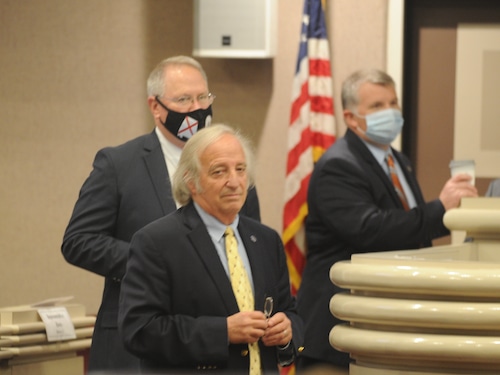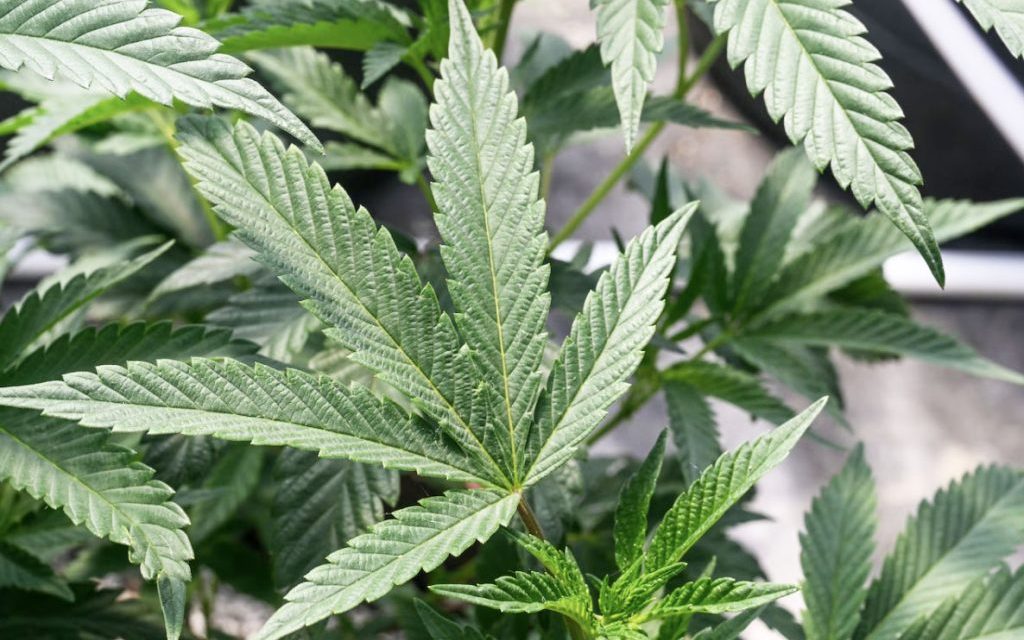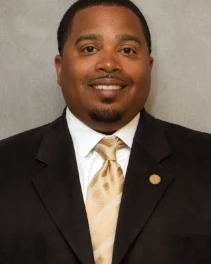By John Sharp
More than three years after Alabama lawmakers gave the go-ahead for medical marijuana, no dispensaries are open. No products have been sold. And not one cent of tax revenue has been generated from it.
But at least one county, which like other counties don’t even know if will ultimately get a dispensary, wants to get on board with generating more revenues than already allowed from medical marijuana sales – whenever sales begin. The entire program is wrapped up in litigation over complaints about how operating licenses have been issued, and there is no timetable for when those concerns might get resolved.
Cullman County voters in North Alabama will decide Nov. 5 on a local referendum whether to apply a 15% countywide sales tax on the gross proceeds on medical marijuana products sold at future outlets. The proceeds from the revenue – which no estimates exist – would be divided by 67% to the Cullman County District’s Attorney’s Office and 33% to the county’s legislative delegation. The delegation will then use those proceeds, at their discretion, on mental health issues.
The details about the referendum will be the subject of a town hall meeting at 2 p.m. Tuesday inside the Bailey Center at Wallace State Community College in Hanceville.
“We sat down and talked with the District Attorney about additional funding, and this was brought up,” said state Rep. Corey Harbison, R-Good Hope. “We said we were not getting involved, but if the people vote on it, they can have the final say. I’m fine with putting the government in the hands of the people. It’s whatever the citizens choose.”
Republican Cullman County District Attorney Champ Crocker, who took office in January 2023, said he approached the legislative delegation about the sales tax over a year ago to assist in funding his office at a time it’s facing a backlog of cases. Crocker said he’s not endorsing the measure.
“We don’t know what this will generate,” Crocker said. “This is a new thing. This started out with an information discussion with the legislative delegation. We talked about how we could get the funds to do what we had to do for this office. This just came out of that discussion.”
Statewide attention

The referendum’s outcome will be watched throughout Alabama, and it has raised concerns from the sponsor of the 2021 medical marijuana legislation, retired State Rep. Mike Ball of Madison. Ball said he believes the referendum, if approved, would raise the costs on legitimate medicine. He also said that confusion still exists in Alabama on the differences between medical marijuana – which is allowed and will be regulated and taxed by the state – versus recreational use of marijuana, which is illegal.
“If you add another tax, it just drives the costs up on sick people who really need this,” Ball said. “I hope the people voting for this understand that this is not about getting marijuana to people who want to get high. I don’t think it will be a great cash cow. I can sympathize with what the (District Attorneys) are facing, but the Legislature and the counties and the state … they need to find a way to fund these District Attorney offices appropriately.”
He added, “This is not the place to do it particularly when we don’t even know how much revenue this is going to generate.”
No county or city has assessed additional sales tax on medical marijuana products since Alabama Gov. Kay Ivey signed the 102-page bill into law in May 2021. The Cullman County tax would be in addition to the 9% tax on gross proceeds written in the original legislation and applied to the sales of medical marijuana.
In addition, business involved in the industry in Alabama would pay an annual fee or a privilege tax. The minimum privilege tax is set at $100, with the maximum at $15,000.
“I know many counties will likely be watching this vote,” said Sonny Brasfield, executive director with the Association of County Commissions of Alabama, who said there are few local laws in Alabama to ensure District Attorneys are fully funded on a county-by-county basis. And since the pandemic, District Attorneys around the state have expressed concerns over a lack of resources to resolve a backlog of court cases.
Taxation
The additional sales tax could make Cullman County one of the most expensive in the country to purchase medical marijuana products where it’s legal to do so. Alabama is one of 38 states that has legalized marijuana – which is a Schedule 1 drug that is illegal on the federal level – for medical purposes.
Most states with medical marijuana assess an additional sales or excise tax, but they almost all are lower than Alabama. Some states like Florida and Iowa, assess the sales tax rate only on medical marijuana purchases.
And in states where recreational marijuana is allowed, the tax rate for medical marijuana is much lower. In Colorado, the first state to legalize recreational use, the sales tax rate for recreational marijuana is 15%, while it’s only 2.9% for medical purchases.
Alabama does not allow for recreational marijuana, which is legal in 24 states but none that are within a short driving distance of the state. Florida voters, however, will decide if the Sunshine State should be the first in the South to legalize recreational marijuana on Nov. 5, via a constitutional amendment that requires 60% support.
Harbison said the Nov. 5 referendum will apply to both medical and recreational marijuana, though he admits Alabama is nowhere close to legalizing recreational use.
“What this does is tax the sale of cannabis products, period,” Harbinson said. “It doesn’t exempt medical cannabis. I think we’re a long way away from Alabama becoming recreational. But it would tax that if it comes in effect.”
Prosecutors, mental health
At issue in Cullman County is whether the medical products should be used to provide funding to District Attorney’s Offices, many of whom opposed legislation that creating a medical marijuana program in Alabama in 2021. Crocker was elected to his office two years after the medical marijuana vote in the Legislature.
Crocker said the criminal case backlog in Cullman County stretches back at least eight years.
“We inherited a backlog of 20 murder cases and resolved nine of those cases in the past year and half and tried a murder case from 2017 just two months ago,” he said. “I would mention that Cullman County is one of the fastest growing areas in Alabama. Because of that, we are already seeing more and more people here and more cases.”
Cullman County, with over 92,000 residents, consistently ranks among the Top 10 fastest growing counties in Alabama.
Crocker said the funding of his office from the state is inadequate, a common complaint raised by District Attorney’s around Alabama. The funding shortfalls have required local governments to open their wallets to support the prosecutors. In Mobile, for instance, the City Council approved last year a three-year agreement to spend $1.5 million – or $500,000 annually – to pay for prosecutors to help reduce a backlog of cases.
“In my office, we have about the same (assistant district attorneys) that we had about 20 to 30 years ago,” Crocker said. “I’d love to have three to four more ADAs. If we can increase our personnel, that will allow us to move things quicker which is better for the victim and better for the victims of crime. It’s also better for people accused of crime who are sitting in a jail to have their cases resolved. It’s also good for law enforcement. They are working every day and bringing these cases to us.”
Crocker said the longer a case remains unresolved, the likelihood a case will become weaker.
“If it takes five to six years to get a case resolved, it only weakens the case,” Crocker said. “Memories fade. We want to move cases quicker.”
The other portion of the ballot initiative is funding for mental health services, which would be decided by the local delegation.
Chris Van Dyke, the chief operating officer with WellStone, Inc. – with facilities in Huntsville and Cullman – said if the referendum was approved, there “is definitely a lot of needs.” He said that WellStone has a “neutral” stance on the referendum.
“We’d love to see crisis services expanded,” said Van Dyke. “We are building it out in Huntsville quite a bit and can (send) people to Huntsville but, in the long run, we’d love a crisis center here that is more local. Residential is also a problem. A lot of people are homeless or struggling with housing because apartments are not as affordable.”
State of flux
The referendum has gotten very little attention in Cullman County, and it has not generated any kind of campaigning. The Alabama Medical Cannabis Commission, a state regulatory agency for the program, is not weighing in on local taxation referendums, according to spokesperson Brittany Peters.
The entire program remains in flux amid litigation that has halted its rollout and concerns raised over the selection process.
Initially, Alabama was to have started its medical marijuana program by the fall of 2022, though the commission spent much of that year laying out the framework for how the program would be regulated and operated.
A Montgomery Country judge appointed retired Circuit Judge Eugene Reese to act as a mediator in a long-running cases over who gets licenses to grow and sell medical marijuana in Alabama.
Under Alabama’s 2021 law, the commission may award up to 12 cultivator licenses, four processor licenses, four dispensary licenses and five integrated facility licenses. The commission announced in late 2022 that it received a total of 94 applications from companies seeking licenses to cultivate, process, transport, test, and dispense medical cannabis products.
The companies denied licenses accused the commission of violating state law and administrative rules in selecting winners. The commission, since 2022, has attempted to award licenses three times, and has rescinded the awards twice over concerns about the selection process.
Ball, the legislation’s 2021 sponsor, said he is hopeful the mediator can resolve the concerns and that the program can finally get started.
“I think the judge wants to get this underway,” he said.











